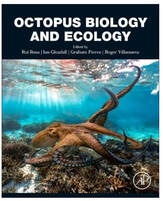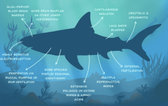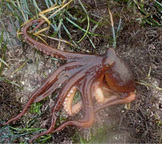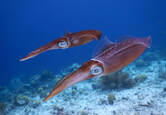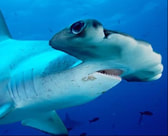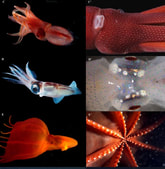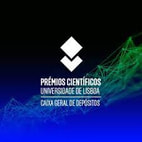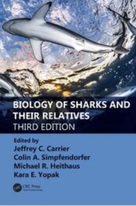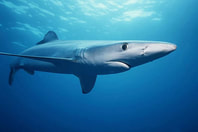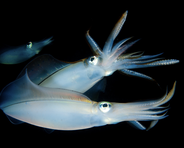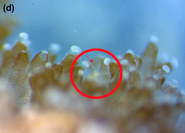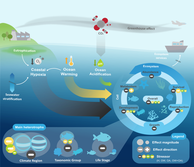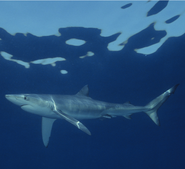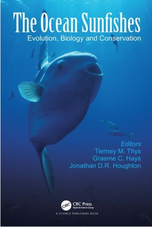|
|
|
|
Global biodiversity and biogeography of coastal octopuses
Rosa et al, 2024 In: Octopus Biology and Ecology Biology (Academic Press, Elsevier), Past, present, and future trends in octopus research
Rosa et al, 2024 In: Octopus Biology and Ecology Biology (Academic Press, Elsevier), Octopus vulgaris, common octopus
Rosa et al, 2024 In: Octopus Biology and Ecology Biology (Academic Press, Elsevier), Origin and diversification of octopuses
Amor, Roura & Rosa. 2024. In: Octopus Biology and Ecology Biology (Academic Press, Elsevier), |
| RECENT NEWS
|
| 2024 | See our new octopus-related book (Academic Press, Elsevier)
"Octopus Biology and Ecology" Rosa, R., Gleadall, I., Pierce, G. & Villanueva, R. (Editors) |
|
| 2024 | See our new shark-related chapter:
"Introduction to elasmobranch physiology" in Encyclopedia of Fish Physiology, 2nd Edition. Rosa, R., Rummer, J. & Santos, C.P. (Academic Press, Elsevier) |
|
| 2024 | See our recent octopus-related paper in Marine Biology
"Octopus crawling on land: physiological and biochemical responses of Octopus vulgaris to emersion" Röckner et al. |
|
| 2023 | Rui Rosa in World’s Top 2% Scientists. Elsevier- Scopus Ranking.
https://elsevier.digitalcommonsdata.com/datasets/btchxktzyw/6 See also: InfoCiências; MARE |
|
| 2023 | See our recent squid-related paper in Marine Biology
"Impact of climate change on the distribution and habitat suitability of the world’s main commercial squids" Guerreiro et al. |
|
| 2023 | See our recent shark-related paper in Frontiers in Marine Science
"Evidence for the first multi-species shark nursery area in Atlantic Africa (Boa Vista Island, Cabo Verde)" Rosa et al. https://www.wilder.pt/historias/cabo-verde-cientistas-portugueses-descobrem-importante-bercario-para-tubaroes-na-ilha-da-boavista/ |
|
| 2023 | See our recent cephalopod-related paper in Frontiers in Marine Science
"Bioluminescence in cephalopods: biodiversity, biogeography and research trends" Otjacques et al. |
|
| 2022 | Rui Rosa in World’s Top 2% Scientists. Elsevier- Scopus Ranking.
https://elsevier.digitalcommonsdata.com/datasets/btchxktzyw/5 https://www.mare-centre.pt/en/investigadores-do-mare-no-worlds-top-2-scientists-list |
|
| 2022 | Rui Rosa received "Prémio Científico ULisboa/Caixa Geral de Depósitos (CGD)"
https://www.ulisboa.pt/info/premios-universidade-de-lisboacaixa-geral-de-depositos |
|
| 2022 | See our new chapter "Climate Change and Sharks" in:
"Biology of Sharks and Their Relatives", 3rd ed. (J.C Carrier, C.A. Simpfendorfer, M.R. Heithaus & K.E. Yopak, Eds.). CRC Press. |
|
| 2021 | FCT-Aga-Khan project funded !
NGANDU - The importance of shark populations and sustainable ocean use for human well-being in Cape Verde and São Tomé and Príncipe, West Africa" - FCT AGA-KHAN/541746579/2019 led by Rui Rosa (PI) and Catarina Frazão-Santos (Co-Pi) |
|
| 2021 | See our recent paper in Ecology (highlighted in National Geographic)
"Location probing by males complicates sexual dynamics and successful mate-guarding in squid groups" www.nationalgeographic.com/animals/article/male-squid-help-choose-a-home-for-their-mate-first-ever-study-shows Eduardo Sampaio et al. |
|
| 2021 | See our recent paper in Coral Reefs.
"The role of corals on the abundance of a fish ectoparasite in the Great Barrier Reef" José Paula et al. |
|
| 2021 | See our recent study published in Nature Ecology and Evolution.
"Impacts of hypoxic events surpass those of future ocean warming and acidification". Eduardo Sampaio et al. |
|
| 2021 | See our recent study published in eLife
"Climate-driven deoxygenation elevates fishing vulnerability for the ocean's widest ranging shark" Vedor et al. See more info here. |
|
| 2021 | See our two new chapters in:
"The Ocean Sunfishes: Evolution, Biology and Conservation" (T. Thys, G., Hays & J.D.R. Houghton, Eds.). CRC Press. One led by Miguel Baptista. https://www.routledge.com/.../Thys.../p/book/9780367359744 |
EXPLORING THE OCEANS OF TOMORROW...
Led by Rui Rosa, the RRLAB seeks to understand how future environmental changes, such as climate change and ocean acidification, affect marine biodiversity. Future changes in ocean's chemistry, temperature and oxygen levels (hypoxia) are predicted to dictate deleterious physiological responses at organism-level, and drive, at community-level, profound impacts on diversity and biogeography.

